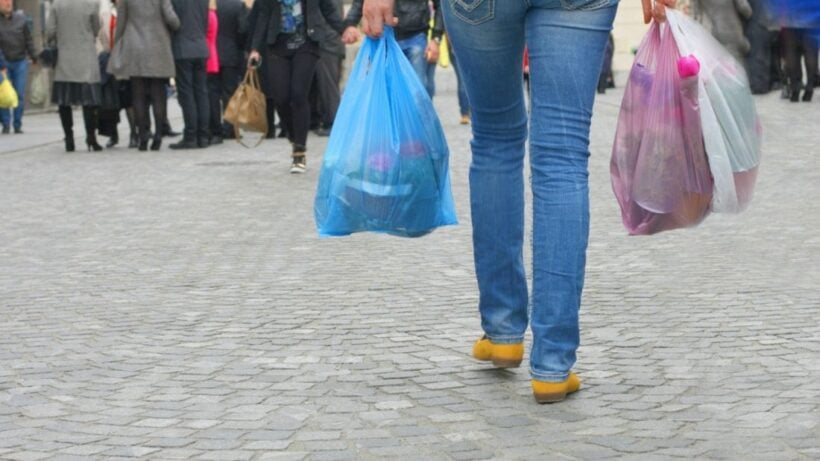Thailand’s plastic bag use plunges by 148,000 tonnes in 3 years

Thailand‘s use of plastic bags plunged by over 148,000 tonnes in about three years. The Pollution Control Department (PCD) launched campaigns in 2018 to cut the use of single-use plastic and plastic shopping bags, in cooperation with the Environmental Quality Promotion Department (EQPD).
The campaign aimed to reduce the use of plastic bags by 43% by 2021. According to an analysis by Regional Knowledge Centre for Marine Plastic Debris, the campaign succeeded in reducing the use of plastic bags by 148,699 tonnes at the end of that year.
The Pollution Control Department (PCD)’s director-general Pinsak Suraswadi said the campaigns to reduce plastic bag use are being carried out under the roadmap from 2018 to 2030 with two major goals: replacing plastic bags with environmentally friendly containers, and reducing plastic garbage by 100% by 2027.
The first campaign targeted shopping plastic bags and foam food containers in markets, shopping malls, and convenience stores, Pinsak said. It reduced the use of plastic bags by 9,824 tonnes. The second campaign, targeting 90 large department stores, convenience stores, and supermarkets, reduced the use of plastic bags by 81.531 tonnes.
The success of the campaigns has encouraged the PCD to draft a plan for the second phase from 2022 to 2027, which was approved by the National Environment Board and endorsed by the Cabinet on February 7. The second phase has three major goals: to reduce the disposal of plastic garbage in landfilling by 100%, to recycle plastic garbage by 100%, and to prevent plastic garbage from polluting the sea by 50%.
According to the Thailand Development Research Institute (TDRI), Thailand was the world’s tenth-biggest dumper of plastic waste into the sea in 2020. The most commonly found plastic items in Thailand’s waterways and oceans are plastic bags, straws, and food containers.
The government banned single-use plastic bags in 2018, but the campaign was affected by the country’s lockdown to contain Covid-19, which led to a boom in food delivery services and more plastic bag usage.
Thai officials have taken other steps to try to reduce the country’s plastic waste. Last month, it was reported that Thailand’s Ministry of Finance had teamed up with the Ministry of Industry to announce a new program that offers a 25% corporate income tax reduction for businesses that buy biodegradable plastic products between 2022 and 2024.
This move is aimed at encouraging companies to make the switch and will reduce waste in the process. Industry Minister Suriya Jungrungreangkit said that the program also supports the government’s bio-, circular and green (BCG) economic model. BCG has been declared a national agenda item by the current administration.
The push for biodegradable products in the industry also promotes manufacturing techniques that add value to products while also having minimal impact on the environment.
The government has also set a goal to make Thailand a bio hub in ASEAN by 2027 and the development of biodegradable plastic materials is part of this plan, along with utilising biochemical and biopharmaceutical technologies.
Latest Thailand News
Follow The Thaiger on Google News:


























